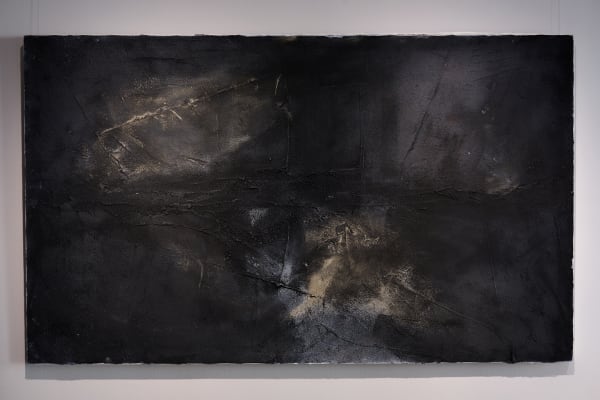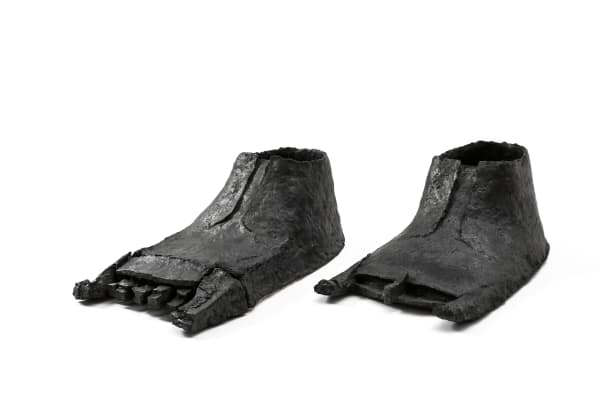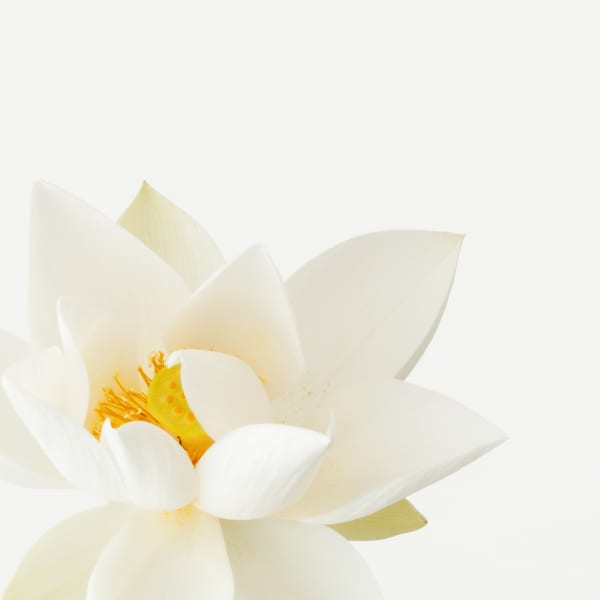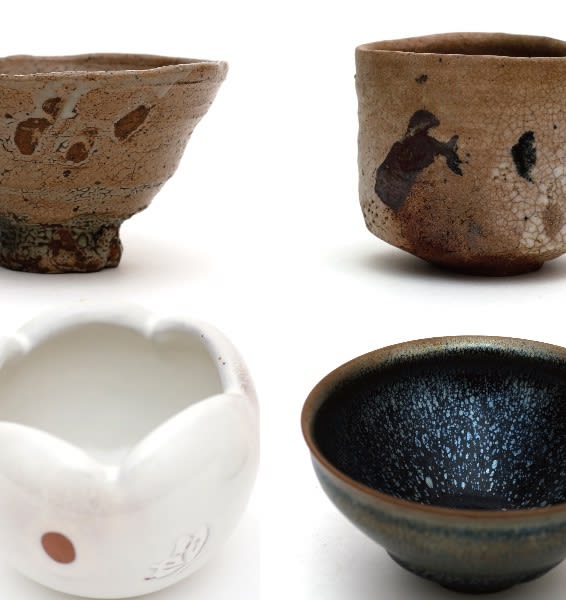Shiro Tsujimura (b.1947) began his artistic career studying oil painting; however, he became disillusioned during this process and eventually abandoned the idea. Inspired by a classic Ido teabowl from the Folk Museum in Japan, Tsujimura embarked on the journey of ceramic arts. He is known widely known as a master of pottery as his ceramic works reflect a level of sophistication and return to nature in the various clay bodies and glazes he used. His dedication to the ceramic arts bleeds into his lifestyle. In 1967, Shiro and his wife moved to Mima, Nara, where he currently resides, and built a home, a teahouse, and seven kilns over the years.
Biography:
1947 Born May 22 in Gossei, Nara Prefecture, Japan.
1965 Leaves for Tokyo to prepare for entrance examination to art college but becomes disillusioned with the mechanical process and abandons the idea. Upon a visit to the Japan Folkcraft Museum, is intensively inspired by a classic Ido Tea Bowl and decides to take up pottery.
1966 - 1968 Resides at Sanshoji, a Zen temple in Nara.
1968 Returns to his father's farm. Builds a potting wheel from the wheel of an old card, and starts practicing at night.
1969 Marries Mieko Sugiyama.
1970 Buys a plot of land deep in the hills above the city of Nara in Mima, and builds his house, a workshop, a tea house, and seven kilns. Starts a long period of study of ceramics. Kilns rebuilt and / or refined numerous times.
1975 First son, Yui, is born.
1976 Second son, Kai, is born.
1977 First exhibition at his home. Catalogue is self - made with snapshots of pieces pasted in a short handmade booklet and distributed to friends.
1978 First public exhibition in Osaka, which is the start of a long career.
1981 After a visit to Kassai City in Hyogo Prefecture, the arhat theme begins to appear in his ceramics and his paintings.
1982 Toyozo Arakawa (1894 - 1985), a Living National Treasure in ceramics, sees Tsujimura's pieces and asks to purchase a vase.
1993 Builds a kiln in West Devon, U.K. and makes pottery for London exhibitions
1999 Honored with a solo exhibition at the Kyoto Chado Shiryokan, only the second contemporary potter after Kyoto veteran Shin Fujihira.
2003 Gives talk about his work at the Metropolitan Museum of Art, New York, and at the Asian Art Museum in San Francisco.
Exhibitions:
1977 First exhibition at Home
1978 Misukoshi, Osaka, Japan
1980 Mitsukoshi, Osaka, Japan
1981 Yamaha Gallery Kichijoji, Tokyo, Japan
1981 Tokyo Mitsukoshi, Tokyo, Japan
1983 Mitsukoshi Nihonbashi, Tokyo, Japan
1984 MOA Museum, Atami, Shizuoka, Japan
1984 Nagoya Maruei, Aichi, Japan
1990 Tachikichi Main Store, Tokyo, Japan
1993 Japan Art, Frankfurt, Germany
1994 Gallery Besson, London, United Kingdom
1994 Franfurt Japan Art, Franfurt, Germany
1995 Mitsukoshi Nihonbashi, Tokyo, Japan
1996 Kuze Gallery, Gifu, Japan
1996 Yu Gallery, Palace Hotel, Tokyo, Japan
1996 Nagoya Maruei, Aichi, Japan
1996 Toyohashi Hankyu Umeda, Osaka, Japan
1999 Chado Research Center Gallery, Kyoto, Japan
2000 Mitsukoshi Nihonbashi, Tokyo, Japan (Paintings)
2000 Hankyu Umeda, Osaka, Japan
2000 Okayama Maruei, Okayama, Japan
2000 Nagoya Maruei, Aichi, Japan
2003 Koichi Yanagi Oriental Fine Arts, New York
2004 Toyohashi Maruei, Aichi, Japan
2005 Tachikichi, Kyoto, Japan
2006 Yu Gallery, Palace Hotel, Tokyo, Japan
2006 Axel and May Vervoordt Foundation, Wijnegem, Belgium
2007 Daitokuji Temple, Kyoto, Japan
2007 "Artempo: Where Time Becomes Art", Palazzo Fortuny, Venice
2008 Daitokuji Temple, Kyoto, Japan
2009 Koichi Yanagi Oriental Fine Arts, New York
2009 Galerie Yoshii, Paris, France
2009 Ryogotei Tokyo, Japan
2010 Joblonka Gallery, Berlin, Germany
2010 Mitsukoshi Nihonbashi, Tokyo, Japan
2010 Tachikichi, Kyoto, Japan
2011 Ippodo Gallery Tokyo, Japan
2011 Kochi Yanagi Oriental Fine Arts, New York
2011 Infinitum, Plazzo Fortuny, Venice, Italy
2012 Galerie Capazza, Nancy, France
2012 Koichi Yanagi Oriental Fine Arts, New York
2012 Lacoste Gallery, Concord, Massachusets
2012 Mingei Arts Gallery, Paris, France
2012 Imura Art Gallery, Kyoto, Japan
2013 Tapie, Los guardo dell'artista, Palazzo Fortuny, Venice
2013 Leslie Kehoe Galleries, Victoria, Australia
2013 Axel Vervoordt Kanaal, Wijnegem, Belgium
2015 PROPORTIO, Palazzo Fortuny, Venice, Italy
Public Collections:
Asian Art Musuem of San Franscisco, San Franscisco, California
Ackland Art Museum and the University of North Carolina, Chapel Hill, North Carolina
Art Institute of Chicago, Chicago, Illinois
Axel and May Vervoordt Foundation, Wijnegem, Belgium
The Brooklyn Museum of Art, Brooklyn, New York
The British Museum, London, United Kingdom
Chado Research Center Gallery, Kyoto, Japan
Cleveland Museum of Art, Cleveland, Ohio
Frankfurt Craft Museum, Frankfurt, Germany
Freer Gallery of Art, National Museum of Asian Art, Washington D.C
Hamilton Art Gallery, Victoria, Australia
ISE Cultural Foundation, Japan
The Metropolitan Museum of Art, New York
Miho Museum, Shiga, Japan
The Minneapolis Institute of Arts, Minneapolis, Minnesota
The Museum of Asian Art, Berlin, Germany
Museum of Fine Arts, Boston, Massachusetts
Philadelphia Museum of Art, Philadelphia, Pennsylvania
Spencer Museum of Art, Lawrence, Kansas
Stockholm Museum of Art, Stockholm, Sweden
Yale University Art Gallery, New Haven, Connecticut
-

Magic of the Tea Bowl
Volume 2 2 Jun - 7 Jul 2022Magic of the Tea Bowl (Vol.2) April 2022 The Japanese tea ceremony was first established during the 16th century and has continued to flourish to the present day. Closely related...Read more -

Moonlit Night
A selection of crafts that celebrates this Otsukimi season 2 Sep - 5 Oct 2021The Moon and Japan The moon can be seen faintly against the blue sky as the sun goes down. The waxing and waning of the moon have long appealed to...Read more -

Kogei: The Art of Japanese craft
Summer Selections from Ippodo Gallery, New York 5 - 27 Aug 2021The Japanese festival of Obon ( お盆) traces back to ancient Chinese and Buddhist rituals that honor one’s ancestors. It is believe that this time every year, the ancestor’s spirits...Read more -

A Lotus in Bloom
The Beauty That Rises 10 Jun - 10 Jul 2020Lotus: Beauty that Rises from the Mud Growing out of muddy water, the lotus produces flowers that represent purity and clarity, resulting its use as a symbol of Buddha’s wisdom....Read more -

Tea Bowls: Art of Five Senses
Contemporary Japanese Tea Ceremony Wares 15 Mar - 7 Apr 2018Expressing Gratitude for Ippodo Gallery’s First 10 Years Shoko Aono “It (Teaism) insulates purity and harmony, the mystery of mutual charity, the romanticism of the social order. It is essentially...Read more -

The Essence of Imperfection
Wabi Sabi at Ippodo Gallery 26 Oct - 22 Nov 2017Wabi Sabi Shoko Aono The call of the evening cicada that signals the approach of autumn, a lonely plain of eulalia grass, a moss-covered rock, a simple teahouse… The Japanese...Read more
-
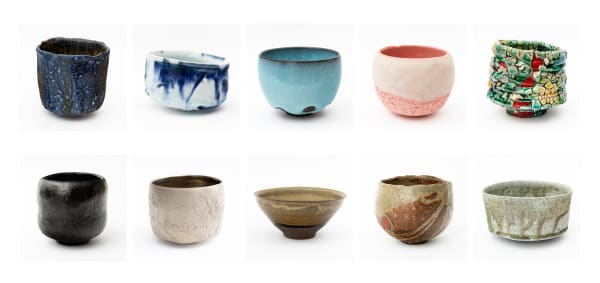
Opening Reception - June 2 5-8pm
Magic of the Tea Bowl Vol. 2 2 Jun 2022Ippodo Gallery is pleased to present another series of Magic of the Tea Bowl – Volume 2, an exhibition of tea bowls by seventeen respected...Read more -
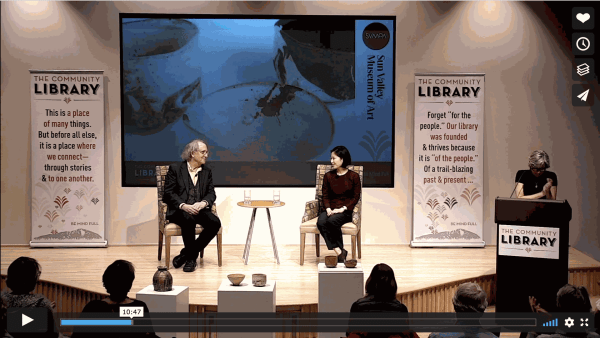
Community Outreach event
With Henry Whiting and Shoko Aono 1 Mar 2022Attracted to the shared aesthetics of Frank Lloyd Wright and Japanese ceramics, Henry Whiting has begun to fill his Wright home, Teater’s Knoll, with ceramics...Read more
-
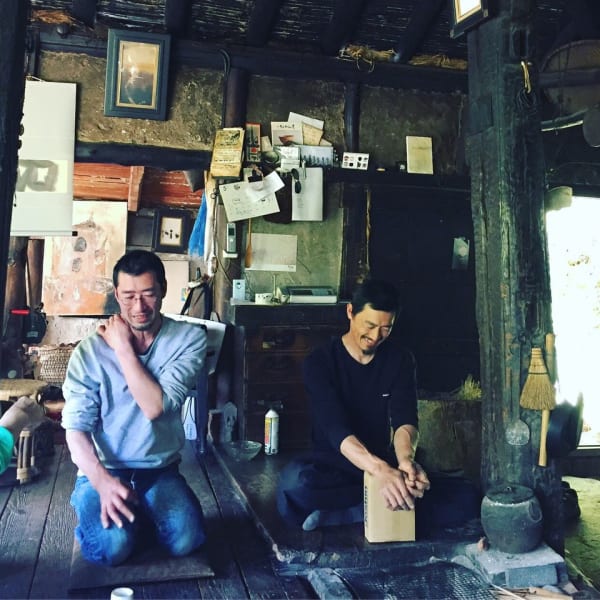
Two Brothers
Kai and Yui Tsujimura July 20, 2021The two sons of one of the most sought-after potters in Japans, Shiro Tsujimura, are like branches on a tree. Their mother, Mieko, nurtured and...Read more -
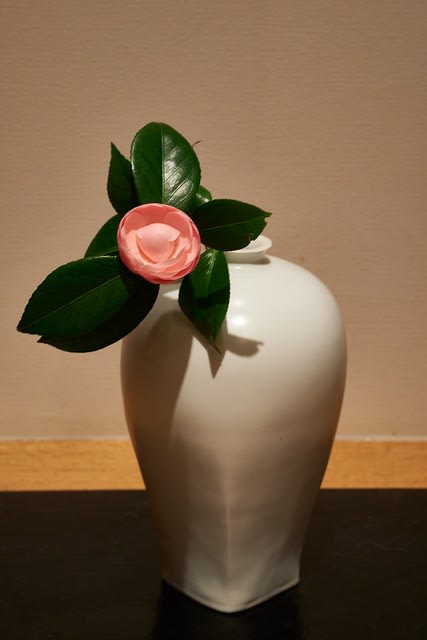
Welcoming The New Year With Ippodo Gallery
January 6, 2021Happy New Year! Ippodo Gallery team hopes that this year is a lot brighter and warmer than the last! To welcome the new year and...Read more -
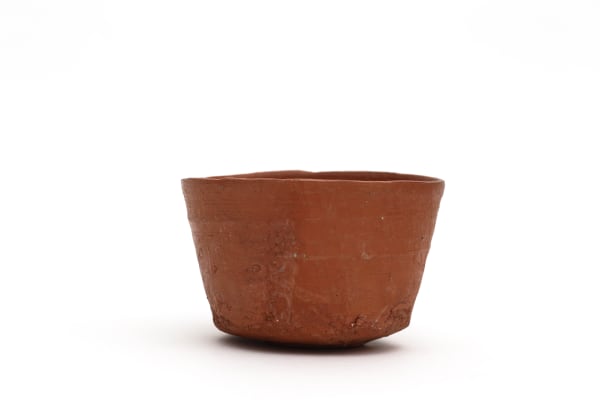
Stoneware and Colorants
On Iron Oxide November 10, 2020Shiro Tsujimura, Red Tea Bowl C17602 Red iron oxide is a very common colorant that is found in ceramics. Iron oxide glazes are usually very...Read more -
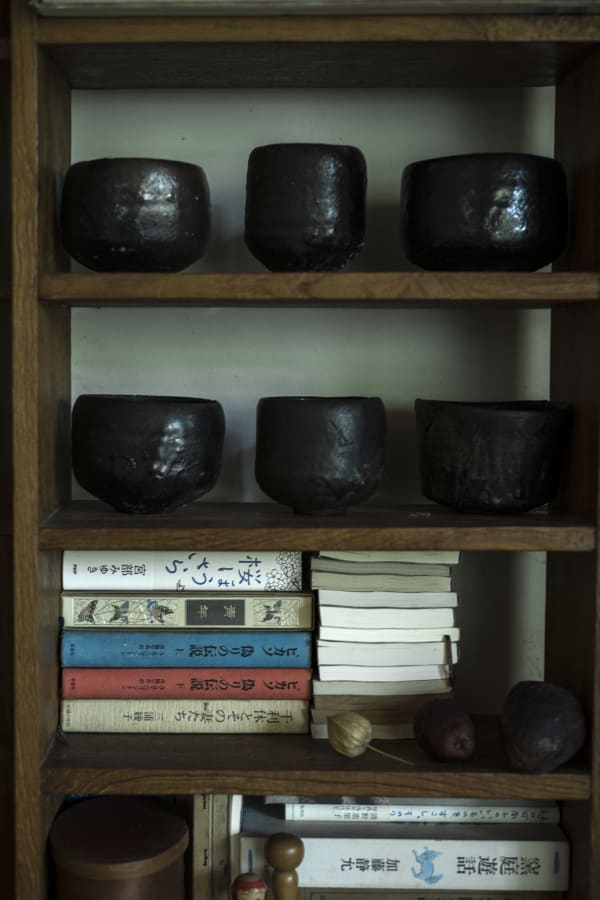
Black Glazes
Tenmoku, Raku, and Oribe November 4, 2020A black glazed tea bowl is a common one among all the artists. Looking through the history of Asian ceramics, black tea bowls traveled from...Read more -
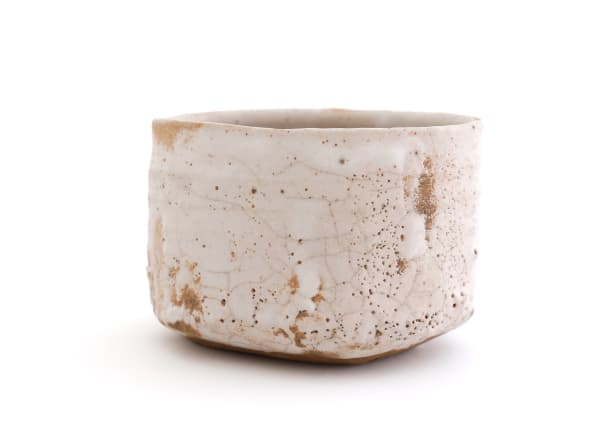
Shino Glaze
An introduction to the Shino glaze technique October 27, 2020Shino glaze was first developed in the Momoyama period (1568 – 1600). The main characteristic of Shino Glaze is of a satin-like white color, occasionally...Read more




